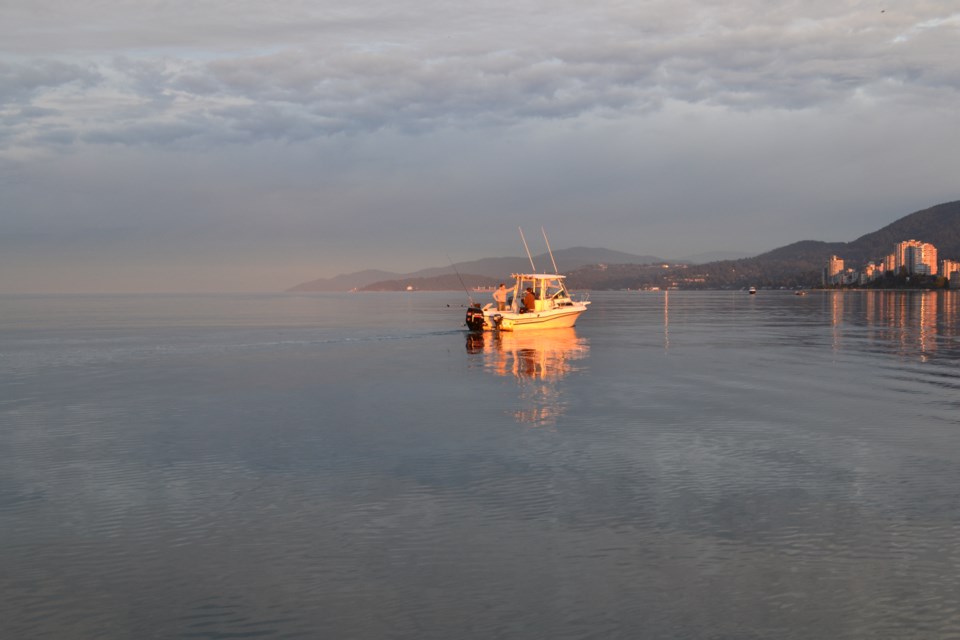As Rudy North recalls, the fishing off the West side of Bowen Island was pretty good back in the 1970s.
“When I got home from work in the summer, if I wasn’t dragging the kids around on water skis I was off fishing by myself,” he says. “It took a certain amount of skill to catch a proper salmon, but you could catch a dozen juvenile salmon pretty easily. At the beginning of the season they’d be six inches long, by the end of the season, they’d be eight inches.”
North says the waters stretching from Cape Roger Curtis to Arbutus point would be packed with fishing boats in those days, and he attributes the collapse of salmon populations in Howe Sound and the Fraser River to over-fishing, at least in part.
“It wasn’t just the commercial fishermen, it was everyone. Sport fishing was a really important part of our social fabric back then,” he says. “They say salmon populations are now down to 10 percent of their historic rates, which is on par with the cod populations on the East Coast. At that level, there’s no guarantee they’re going to come back but we have to understand all the factors at play if we are going to make it happen.”
A desire to understand the “big picture” of what’s happening in the Salish Sea and how it’s affecting salmon motivated North, the President and CEO of North Growth Management, to donate $250 thousand to the Pacific Salmon Foundation’s Salish Sea Marine Survival Project.
Dr. Brian Riddell, a scientist formerly with the Department of Fisheries and Oceans and the current President of the Pacific Salmon Foundation, is heading up the project.
“With the Marine Survival Project, I tell people we are studying everything everywhere. We will be looking at historical data and seeking new data including ‘bottom-up’ factors that affect salmon, such as phytoplankton and zooplankton and ‘top down’ factors such as predation, disease and interactions with hatcheries. We will study environmental conditions like weather variables and freshwater flows in tributaries and rivers.”
Riddell says that there have been thousands of studies on salmon in the Salish Sea, but all of them have been localized and very specific.
“The results from these studies provide clues about how things interact, but they are not helpful in understanding the system as a whole,” he says.
A plan to bring all the data for the Strait of Georgia into one place and make it all accessible was a major first step in the Marine Survival Project, and that was made possible by Bowen Islanders Ross and Trisha Beaty. The Beatys offered up a $300 thousand grant from their foundation, The Sitka Foundation, to establish what will be called the Strait of Georgia Data Centre.
Housed at the UBC Fisheries Department, this Centre will bring together data which exists, often, in the minds of aging and retired researchers, or on obsolete media. Once it is all collected, anyone will be able to go online and look at it for no cost.
Riddell says that gaps in knowledge about what has happened in the Strait of Georgia over the past two decades are hindering its recovery.
“In 1994 Coho salmon production plummeted in the Strait, forcing an end to the harvesting of wild Coho. Also since the mid-1990s there has been a precipitous decline in the survival of both wild and hatchery-bred Coho at sea. We don’t know why this is, and without that information, we aren’t likely to find a solution.”
The Marine Survival Project will also be looking for current data, and to collect that, the Pacific Salmon Foundation will be employing “citizen scientists.”
“We will equip fishing vessels with the necessary equipment, and send them out to specific locations mapped out by GPS on specific days at specific intervals – either every week or every two weeks – to collect samples and data,” says Riddell. “We think that ten boats will be enough. It is fairly easy to collect data, but more challenging to analyze it.”
The Canadian portion of the Marine Survival Project (the same work is being undertaken for an equal amount in the Southern portion of the Salish Sea by an organization called Long Live the Kings) is slated to take five years, and to cost $10 million. Rudy North’s donation brought the amount of funding acquired by the project up to $7.5 million.
Despite the $3.5 million shortfall in required funds, the Pacific Salmon Foundation has already started its work, testing equipment in the waters of Cowichan Bay.
“We are in spitting distance of getting the money we need for this,” says North. “And there are skeptics who say you will never find the answer to this problem but I think this is a good opportunity to do things right. You need a holistic approach, and this study is very collaborative and will be looking into all the factors affecting the lifecycle of salmon.”



